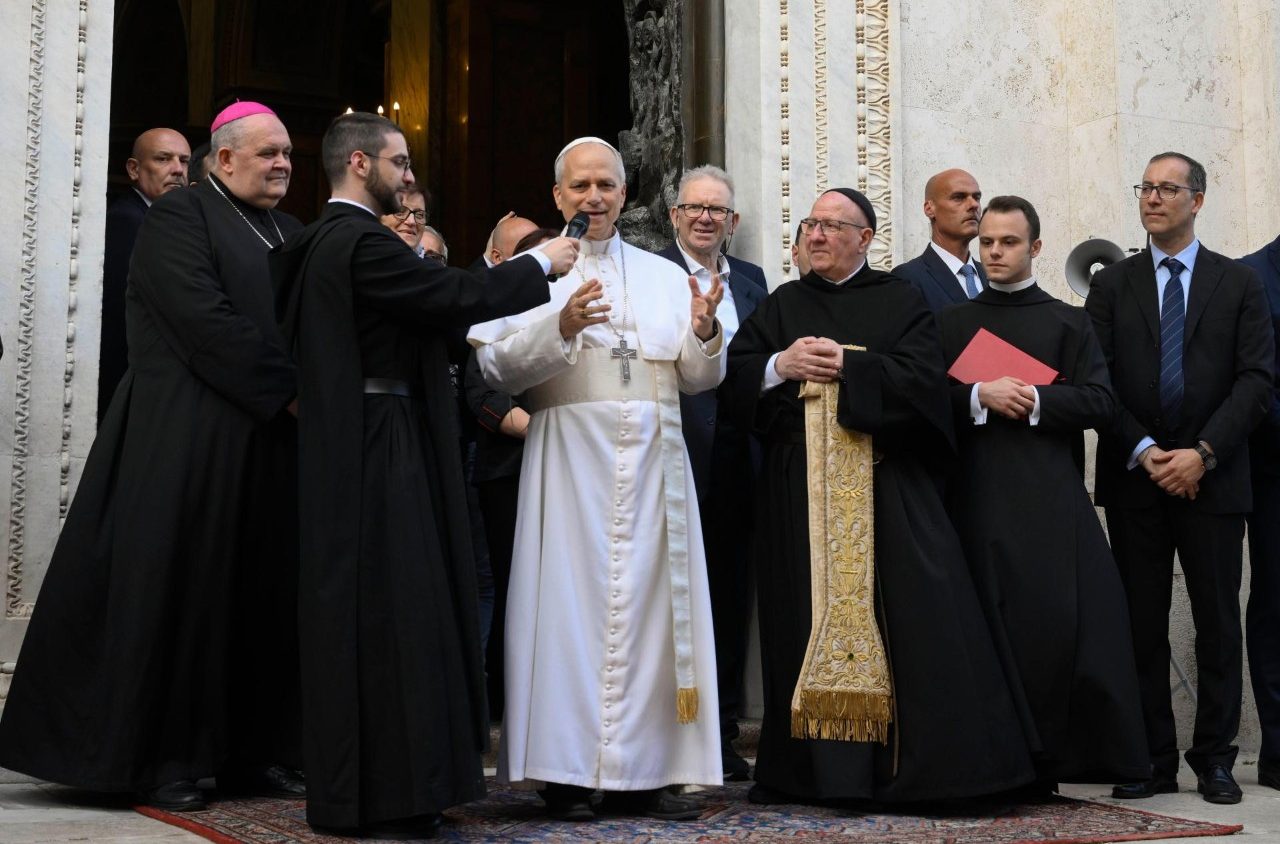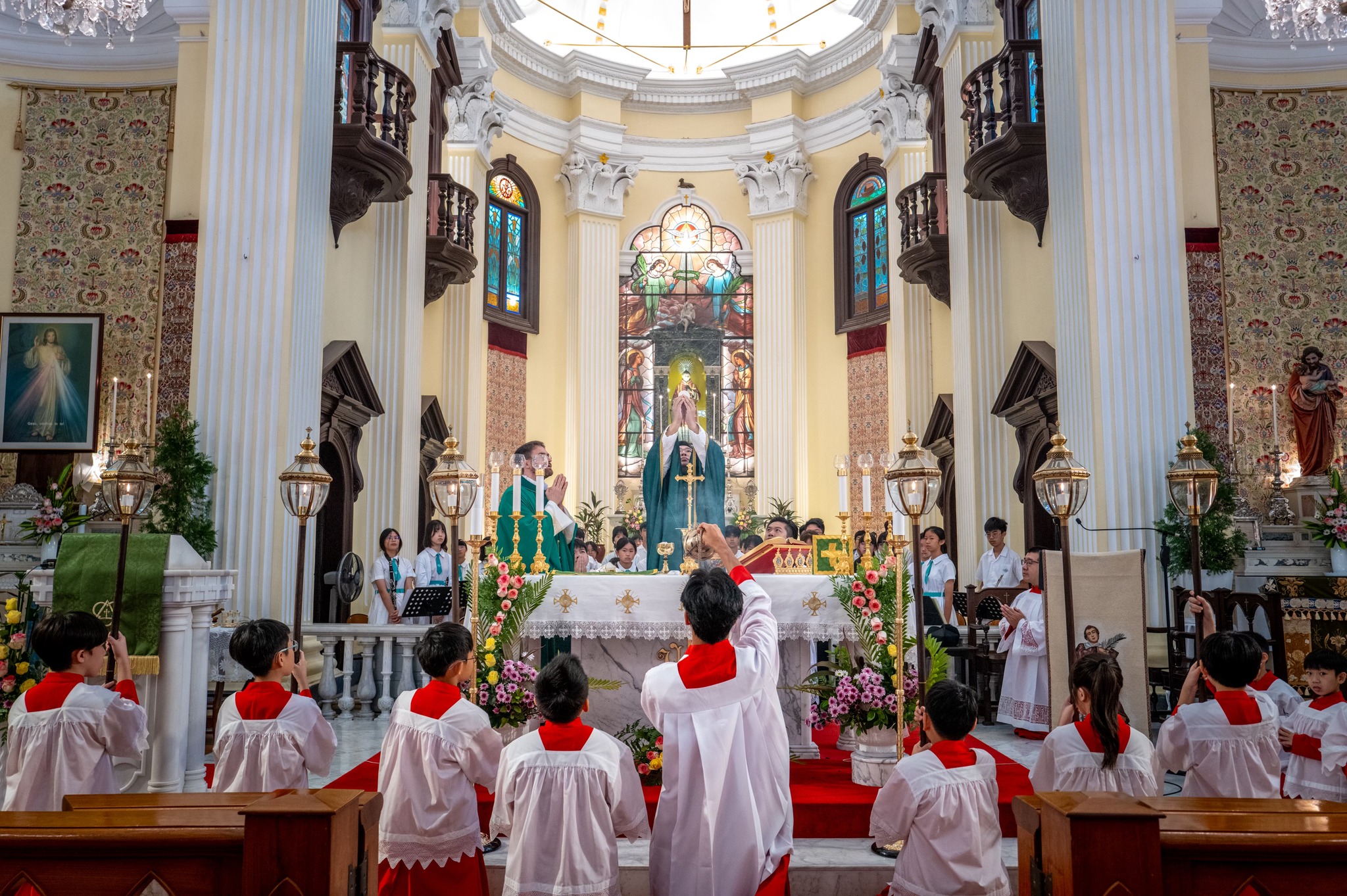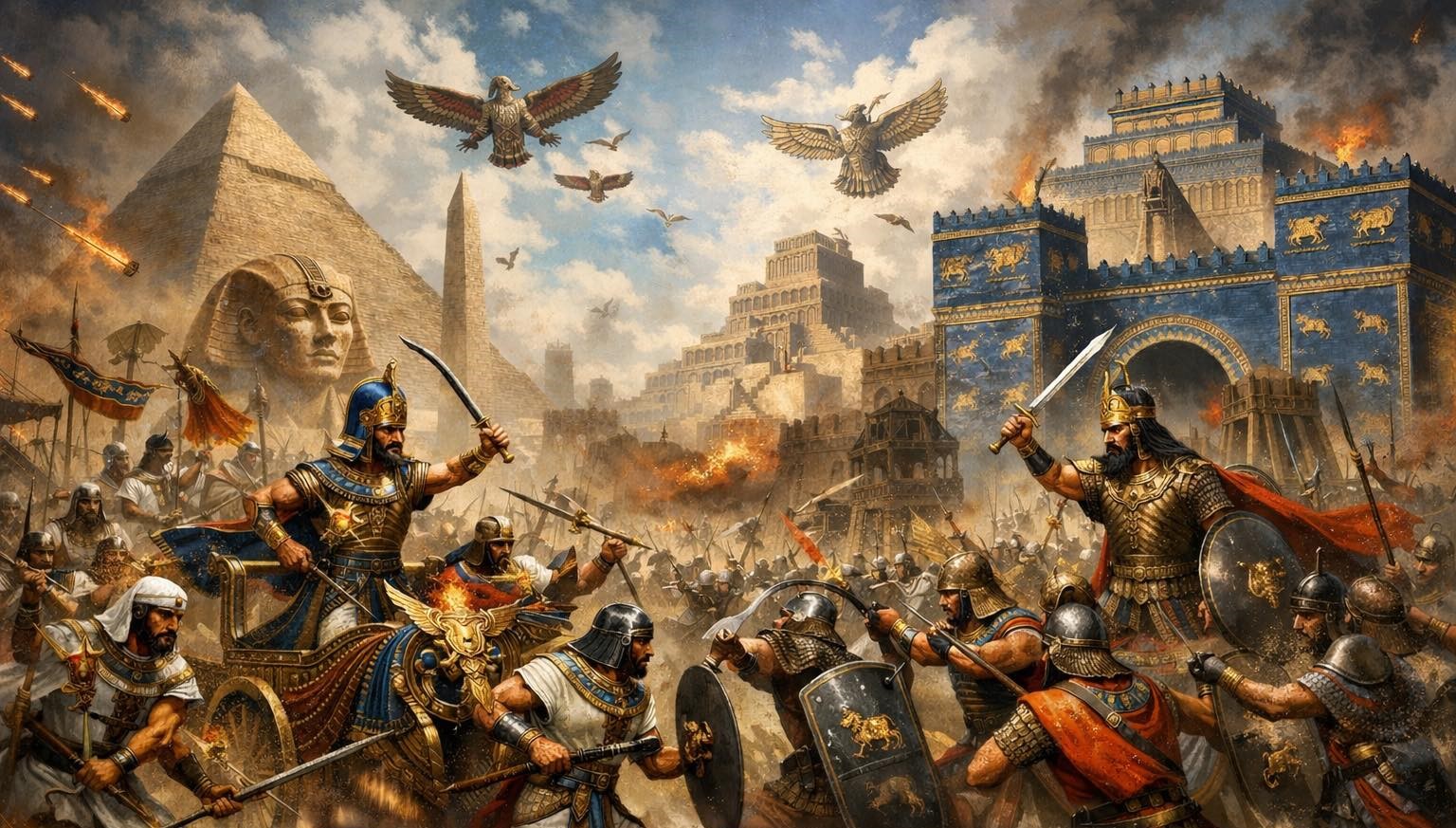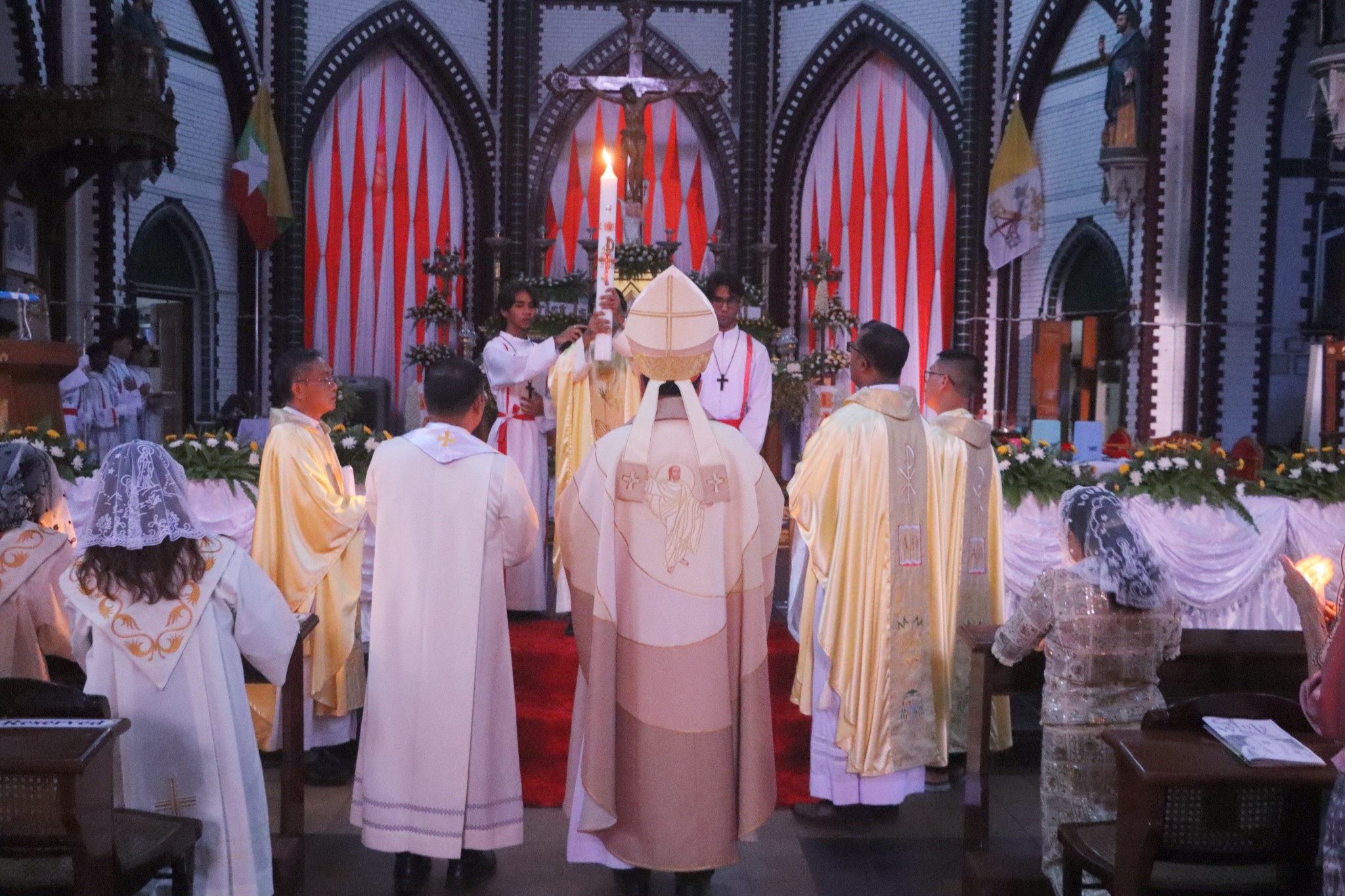Marco Carvalho
After stepping out to the main balcony of Saint Peter’s Basilica as Pope Leo XIV, Cardinal Robert Francis Prevost identified himself not by nationality, but as being “a son of Saint Augustine, an Augustinian”. That sense of identity, Father Javier González claims, is more than symbolic and unquestionably influences the pope’s spiritual and theological outlook. The former Prior Provincial of the Dominican Province of Our Lady of the Rosary is confident that Pope Leo XIV will continue the legacy of his predecessor, albeit with a much more moderate style. The Spanish missionary – who as a Dominican follows the Rule of Saint Augustine – believes Pope Leo will strive to safeguard the Church’s prophetic value and her loyalty to the Gospel of Christ. Fidelity to the Gospel, Father González says, is the only limit the Holy Father will face.
During the Mass Pro Eligendo Romano Pontifice, Cardinal Re invoked the Holy Spirit, asking for “his light and strength so that the Pope elected maybe he whom the Church and humanity need at this difficult, complex and troubled turning point in history.” Is Pope Leo XIV the pope the Church needs right now?
Father Javier González: Yes, I believe so. The Pope’s election counts with a hidden element that is not taken into account in the elections of political leaders, namely, the direct assistance of the Holy Spirit on the electors. In this case, in the form of inspiration on the electing Cardinals. The prayer of the Church before the election of the Pope is not only for the Spirit to inspire the Cardinals, but also for the Cardinals to be receptive and open to the Spirit’s inspiration, so that in casting their vote they may be moved by it, rather than by their own interests. In general, spiritual honesty prevails. And since God’s ways are not our ways, this explains why ordinarily the name of the newly elected Pope does not tally with the list of names anticipated by the media. There is a popular saying that “those cardinals who enter the conclave as popes, exit the conclave as cardinals.” Truly, being the Holy Spirit’s choice, I have all the reasons to believe that the new Pope Leo XIV is “he whom the Church and humanity need at this difficult, complex, and troubled turning point in history.”
Our new pope chose Leo as his papal name. What can this choice eventually say about his pontificate?
F.J.G: The new Pope’s choice of Leo as his name came as a great surprise. Many had anticipated names related to the latest popes, from John XXIII to the latest Francis. Again, another surprise by the Holy Spirit! Once the name was announced, people started guessing the why of this new name. By now, there is no room any more for guessing, since Pope Leo XIV himself has explained some of his reasons for it: (…)“The main one, because Pope Leo XIII, in his historic encyclical Rerum novarum addressed the social question in the context of the first great industrial revolution.” “In our own day,” he continued, “the Church offers to everyone the treasury of her social teaching in response to another industrial revolution and to developments in the field of artificial intelligence that pose new challenges for the defence of human dignity, justice, and labour.” These words in addition to explaining the reason for his chosen name, anticipate also some of the priorities and concerns of his pontificate.
Pope Leo XIV has a long history of missionary work, of going to the peripheries. How can this experience influence or shape his pontificate?
F.J.G: Pope Leo XIV has, indeed, a long history of missionary work, mainly in Peru. This experience will greatly influence the style of his pontificate. His direct contact with the poor and marginalized, the simplicity of his life-style, his preaching of the gospel to humble people, in short, his empathy with people in the peripheries, will remain forever engraved in his personality and shape his pontificate. “I still consider myself a missionary. My vocation, like that of every Christian, is to be a missionary, to proclaim the Gospel wherever one is,” Pope Leo XIV said to the media shortly after his election. How will all this influence his leadership as Pope? Among other things, by keeping him very attentive to the needs of the global Church and by siding him with the poor and the workers, without disregarding other sectors of the faithful under his care. His missionary experience will likewise allow him to know how to reach more people and communicate his message with empathy. It will even help him to be a peace promoter!
Cardinal Prevost was also the former Superior General of the Order of Saint Augustine. How can the Augustinian charism guide or determine his papacy?
F.J.G: The facts of being the first Augustinian Pope and of having been a professed Augustinian friar for almost 50 years, since 1977, are a great plus for Pope Leo XIV. “I am an Augustinian, a son of St. Augustine,” he said in his opening address, before quoting the Saint’s words: “With you I am a Christian, and for you I am a bishop.” No doubt the Augustinian charism and spirituality, together with the enthusiastic support by the Augustinian family, will guide his papacy. Actually, they are already moulding it from his very first day as Bishop of Rome. It was not by chance that Pope Leo’s first homilies and speeches were deeply Christocentric, focused on unity and peace, had a mission-oriented outlook, promoted devotion to Mary, all these elements being much in line with the Augustinian tradition. Otherwise, how could we interpret, for example, that Pope Leo’s first trip out of the Vatican on May 10th was to the shrine of the Mother of Good Counsel at Genazzano, whose image the Augustinians have cared for since the 14th century? Even in his coat of arms, Pope Leo incorporates several elements of his Augustinian spirituality to say nothing that his mere motto — In Illo uno unum [“In the One, we are one”] — comes from a sermon of St. Augustine on Psalm 127. I myself, as a Dominican, profess the Rule of St Augustine and know that its main trait – Love of God and love of neighbour as the center of Christian life— will mould Pope Leo as a compassionate leader and pastor of the Church.
What would you say are the biggest challenges Pope Leo will have to address in his pontificate?
F.J.G: In terms of challenges, my believe is that Pope Leo will, in principle, continue the legacy of Pope Francis – although with a much more moderate style – on the issues the Church has to face today. His stress will be, I guess, on the renewal of the missionary spirit in the Church in preaching the Gospel, on a genuine concern for the poor and the marginalized, on a balanced and well-understood synodality and on a courageous proclamation of the Catholic social teaching, with stress on dialogue, justice, peace, and a constructive use of media Artificial Intelligence included) which will in turn imply fighting the evils of ‘relativism’ and ‘superficiality’ both inside and outside the Church. These are to my mind the main challenges of the Church today, not necessarily those often presented by the newspapers. Thinking, as many people do, that the Church would be more “modern” if she accepted, for instance, same-sex marriages, abortion tolerance, novel doctrinal changes, and the like, is simply wrong, for it would only mean for the Church losing her prophetic value and her loyalty to the Gospel of Christ.
Will his election to the chair of Saint Peter change the Catholic Church? What limits will he face?
F.J.G: I have great hopes in Pope Leo XIV, as the religious leader the Church and the world need today. His election to the chair of Saint Peter will positively change the Church. Perhaps not in the spectacular way many people may be thinking of, but rather in some more tranquil, subtle ways, at times invisible to the eye, as it might be battling evil with love. He will surely strength the Church today by advocating a firm defence of values and structures, for example, of life, of marriage, of priesthood, which will ironically lead the Church not to a “modernization” path that would imply “adjusting” herself to the criteria and structures dictated by our contemporary society, but which, on the contrary, will lead the Church to take the prophetic stand of fidelity to the Gospel. This one – fidelity to the Gospel – is the real limit Pope Leo will have to face in his petrine ministry. My prayer is that Pope Leo XIV, with his balanced personality, his missionary experience, his doctrinal preparation and of course with the guidance of the Holy Spirit, manage to write a new, fruitful chapter in the history of the Church, showing himself as a Pastor capable of looking after the loss sheep of Christ’s flock, but without at the same time creating havoc or insecurity on the sheep who try to be faithful!


 Follow
Follow


